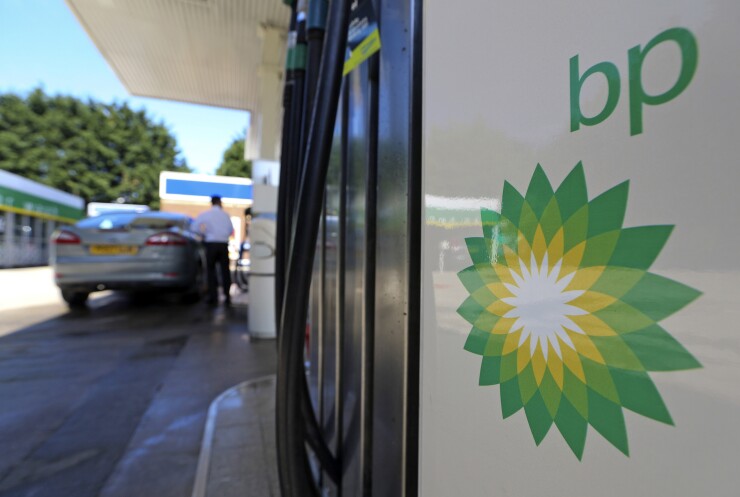American Express’ ambitious multi-merchant rewards program, Plenti,
Plenti enabled consumers to earn and redeem rewards at multiple merchants using any payment card, a concept that holds strong appeal in some markets. Air Miles Canada’s coalition loyalty program has more than 100 sponsors, and two-thirds of Canadians participate.
But in the U.S., the model didn’t fly. Launched in 2015 with partners including AT&T, ExxonMobil, Macy’s, Rite Aid and Enterprise Rent-A-Car, Plenti folded three years later when consumers failed to find a rhythm with the program and major merchants defected.

“We watched the emergence of Plenti and saw the positives—consumers liked being able to use points at different retailers—but there needs to be a reason for people to use it regularly,” said Mladen Vladic, FIS’ general manager of loyalty.
Problems included friction in the original consumer sign-up process, and merchant-category exclusivity (which meant no direct competitors could be on the program; if ExxonMobil was in, Citgo was out).
“It’s hard to find a mix of merchants that match all consumers’ interests,” Vladic said.
What Plenti did right was get consumers interested in visiting specific merchants to earn points, and FIS wanted to capitalize on that dynamic. FIS also wanted to get consumers in the habit of using their card more often to earn and redeem points.
For years, FIS has offered a rewards program to more than 3,000 financial institutions on its platform with cash, gift cards, travel and merchandise rewards, but consumers tend to hoard points for these less frequent, bigger prizes, according to Vladic.
To increase the pace of earning and burning points, FIS in 2016 introduced Premium Payback, a new layer of its loyalty program enabling consumers to automatically rack up rewards for using credit and debit cards. They could then immediately redeem these points at places like gas stations, grocery and convenience stores.
BP was FIS' first partner in a year-long pilot that began three years ago. During the pilot, consumers were prompted at the checkout with a message asking if they want to redeem points to lower their transaction total.
“The idea was to keep it incredibly simple, so all they have to do is press a ‘yes’ or ‘no,' " Vladic said.
About 37 percent of consumers accept the offer when it’s presented at the POS, FIS said.
The next hurdle was expanding this program to merchants in other regions.
“BP doesn’t have acceptance in the western half of the U.S., and we needed a national gasoline retailer for this to really work,” Vladic said.
After months of negotiations, FIS this year announced the addition of Shell in the Premium Payback program, in a partnership with Excentus, the loyalty firm that handles Shell’s other rewards programs that span a wide range of retail participants. Consumers now may earn rewards at 13,400 U.S. Shell stations along with BP stations.
Many U.S. merchants are loath to collaborate with rivals within the same category, which makes it tough to expand a loyalty platform in competitive product areas, Vladic acknowledges.
But FIS has structured Premium Payback to give merchants more upside than risk to participating.
Merchants pay nothing for the redemption portion of the purchase, incrementally reducing their per-transaction costs, FIS said. The merchant’s own loyalty program always takes precedence, with FIS enabling consumers to “double dip” by capturing rewards for any overlapping loyalty programs with each swipe.
Premium Payback could also help solve another problem for financial institutions: unredeemed
“Many banks have millions of consumers’ unredeemed points accruing in their rewards programs that represent future liability and they’d like to offload those by making it easy and convenient for consumers to burn those points in their everyday activities,” Vladic said.
Banks can adjust the value of the points they dole out to consumers up or down in FIS’ loyalty scheme to suit their bottom lines.
“Banks can set their cost below a penny a point, and applying this approach to everyday rewards for gas still has a high perceived value to consumers,” Vladic said.
Three or four other national merchant brands with everyday spending power are in discussions with FIS to join Premium Payback soon, Vladic said. He declined to name them.
FIS may be on the right track by concentrating on lower-end card purchases, while the premium-level bank card rewards programs
“Card issuers cannot afford to continue the rewards arms race for much longer,” Riley said, noting the global downward pressure on credit card interchange, which many banks use to fund card rewards programs.
“If the 2020 elections bring price controls to credit card interchange, as Dodd-Frank did to debit, rewards in the future will not resemble the current market. FIS has strong positioning with their member base and testing reward variations is a good idea,” Riley said.





